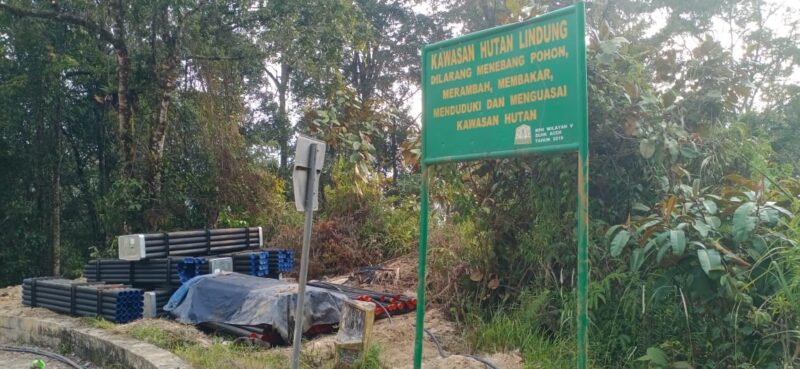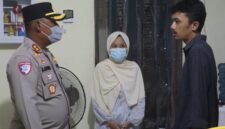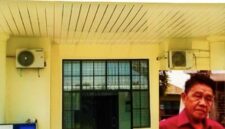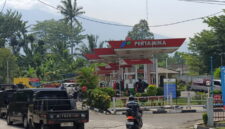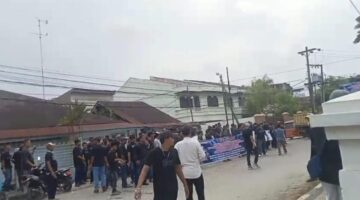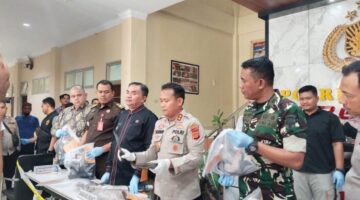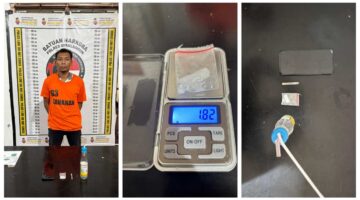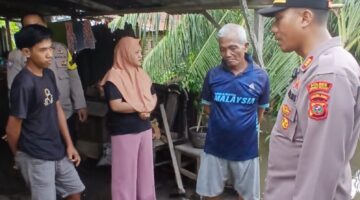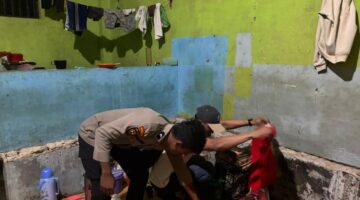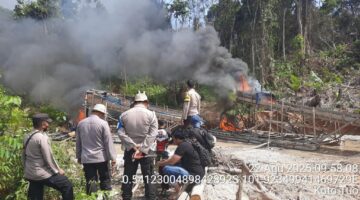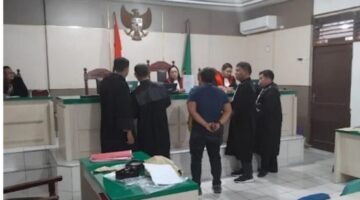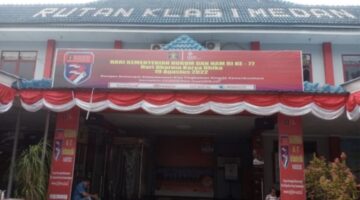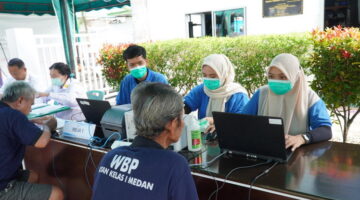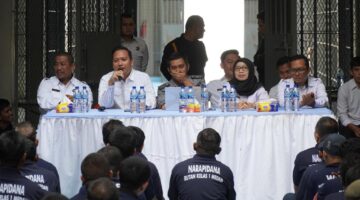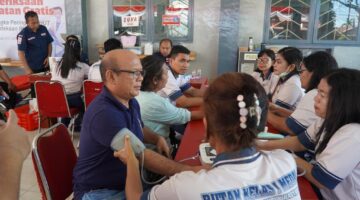Monday, July 28, 2025 — A narrow road cuts through the misty hills of Pantan Cuaca, Gayo Lues Regency, its shoulders hugged by dense forest and the soft drone of insects. But on this day, something out of place caught the eye. Piles of black pipes, coils of industrial cable, and heavy project materials were dumped carelessly just beneath a government-erected sign that reads in bold letters: Protected Forest Area. No Logging, Encroachment, Burning, Occupation, or Control of Forest Territory. The sign was placed there by the Aceh Forest Management Unit Region V in 2019. Today, it stands not as a deterrent, but a symbol of irony — the state is present, but ignored.
This investigation reveals that the site is part of a gold mining exploration zone operated by PT Gayo Mineral Resources (GMR). The company, for the past several years, has targeted the mineral-rich soil of Gayo Lues with promises of “green investment” and job creation. But those promises ring hollow. What’s visible on the ground is far from lawful: operations have begun without finalized and legal environmental permits.
The legal status of the land is unambiguous: it is a protected forest. Law No. 41 of 1999 on Forestry explicitly prohibits any activity within such zones without special permits, including the Forest Area Borrow-Use Permit (IPPKH). Without this permit, even placing construction materials constitutes a violation. Under Indonesia’s forestry criminal code, such actions can result in severe penalties. Yet, based on public document reviews and internal interviews, as of July 2025, there is no official record that PT GMR has secured an IPPKH from the Ministry of Environment and Forestry (KLHK). The Environmental Impact Assessment (AMDAL) process is also fraught with questions — particularly around community involvement and transparency.
ADVERTISEMENT

SCROLL TO RESUME CONTENT
Worse still, this investigation uncovered signs of deliberate inaction from local authorities. Several regional officials appear to have turned a blind eye to GMR’s activities. Even when environmental advocates began raising alarms, the Gayo Lues Environmental Agency and the Sumatra Nature Conservation Agency remained disturbingly silent. Their refusal to act not only ignores legal obligations — it betrays public trust. There are strong indications that PT GMR is exploiting this regulatory vacuum to entrench itself. Reports suggest the company has distributed CSR funds and cultivated close ties with local figures — all without clarifying the legal basis of its operations.
Pantan Cuaca is not merely a mining grid on a map. It lies within the Leuser Ecosystem, home to critically endangered tigers, elephants, and numerous endemic species. The protected forests here are vital to regional hydrology and microclimate regulation, serving thousands of hectares of farmland downstream. Every unlicensed machine deployed, every pit dug without proper study, is a wound on the ecological balance. Moreover, the company’s presence is already sowing division among communities. Some residents who questioned the project’s legality report being ostracized. As the forest — once their lifeline — transforms into a closed-off industrial zone, what arises is not prosperity, but a crisis of trust and growing social tension.
The GMR case in Pantan Cuaca is not merely an administrative slip-up. It is a profound test of state authority and environmental commitment. If forestry officers, environmental regulators, and KLHK remain silent, this is no longer just a legal infraction — it is a betrayal of the constitution itself. The state must act decisively: seal the project site, confiscate all materials unlawfully placed within protected zones, and launch a full investigation into PT GMR’s legal standing, including possible forgery or unlicensed operations. All gold mining activities in Gayo Lues must cease until IPPKH and AMDAL procedures are completed transparently and lawfully. Officials complicit in this inaction must be identified and held to account.
We cannot allow protected forests to be turned into mining projects under the guise of development. Climate justice is not a commodity. When corporations like PT GMR trample the law and the government looks away, it is the people — and the environment — who pay the ultimate price. This editorial stands as a record: we have seen, we are bearing witness, and we will not remain silent. (*)




